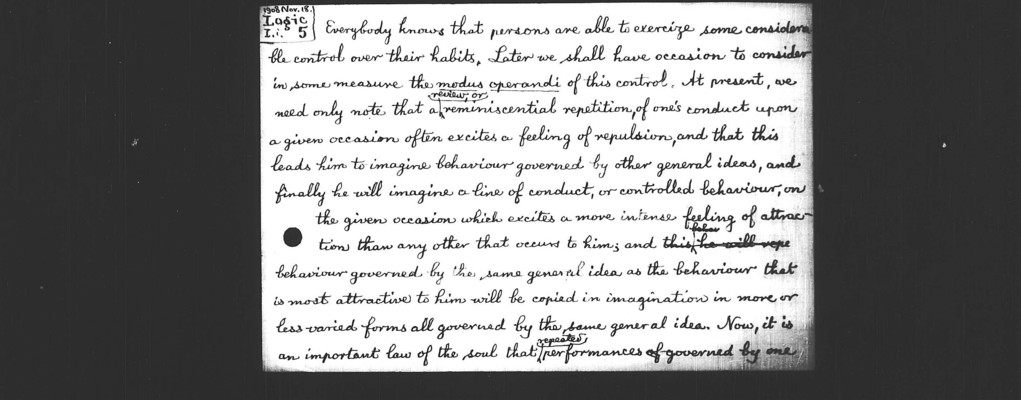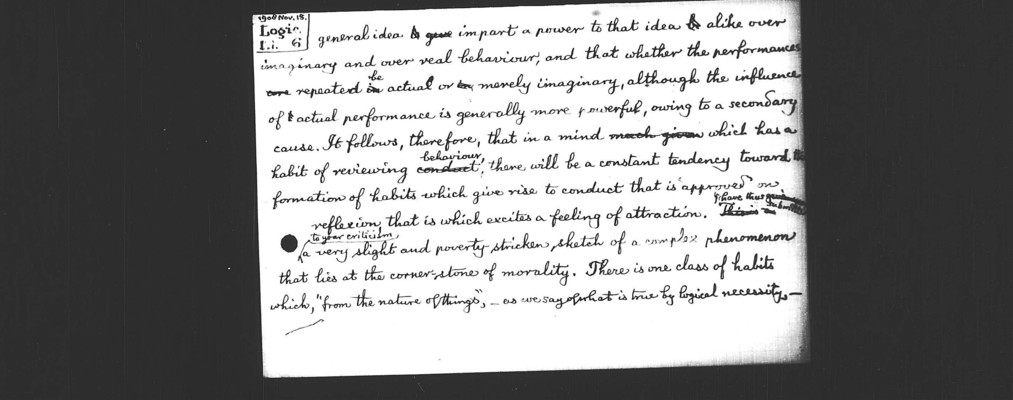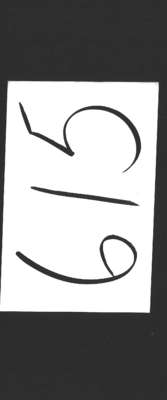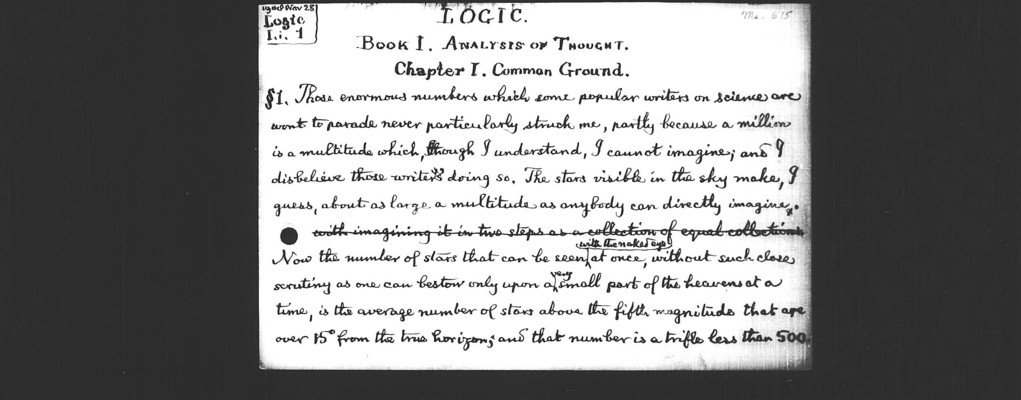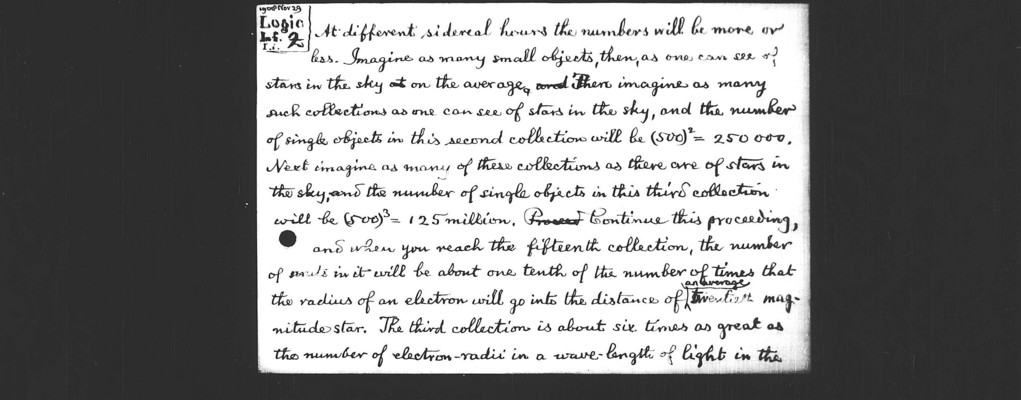Pages
95
1908 Nov. 18. Logic I.i. 5
Everybody knows that persons are able to exercize some considerable control overt their habits. Later we shall have occasion to consider in some measure the modus operandi of this control. At present, we need only note that a review, or reminiscential repetition, of one's conduct upon a given occasion often excites a feeling of repulsion, and that this leads him to imagine behaviour governed by other general ideas, and finally he will imagine a line of conduct, or controlled behaviour, on the given occasion which excites a more intense feeling of attraction than any other that occurs to him; and behaviour governed by the same general idea as the behaviour that is most attractive to him will be copied in imagination in more or less varied forms all governed by the same general idea. Now, it is an important law of the soul that repeated performances governed by one
96
1908 Nov. 18
Logic
I.i. 6
general idea impart a power to that idea alike over imaginary and over real behaviour, and that whether the performances repeated be actual or merely imaginary, although the influence of actual performance is generally more powerful, owing to a secondary cause. It follows, therefore, that in a mind which has a habit of reviewing behaviour, there will be a constant tendency toward [to?] formation of habits which give rise to conduct that is approved on reflexion, that is which excites a feeling of attraction. I have thus submitted to your criticism a very slight and poverty stricken sketch of a complex phenomenon that lies at the corner-stone of morality. There is one class of habits which, "from the nature of things:, - as we say of what is true by logical necessity, -
98
1908 Nov 28 Logic I.i. 1
LOGIC.
BOOK I. ANALYSIS OF THOUGHT.
Chapter I. Common Ground.
§ 1. Those enourmous numbers which some popular writers on science are wont to parade never particularly struck me, partly becuse a million is a multitude which, though I unterstand, I cannot imagine; and I disbelieve those writers' doing so. The stars visible in the sky make, I guess, about as large a multitude as anybody can directly imagine. Now the number of stars that can be seen with the naked eye at once, without such close scrutiny as one can bestow only upon a very small of the heavens at a time, is the average number of stars above the fifth magnitude that are over 15° from the true horizon; and that number is a trifle less than 500.
99
1908 Nov 29 Logic I.i. 2
At different sideral hours the numbers will be more or less. Imagine as many small objects, then, as one can see of stars in the sky on the average. Then imagine as many such collections as one can see of stars in the sky, and the number of single objects in this second collection will be (500)² = 250 000. Next imagine as many of these collections as there are of stars in the sky, and the number of single objects in this third collection will be (500)³ = 125 million. Continue this proceeding, and when you reach the fifteenth collection, the number of units in it will be about one tenth of the number of times that the radius of an electron will go into the distance of an average twentieth magnitude star. The third collection is about six times as great as the number of electron-radii in a wave-length of light in the
